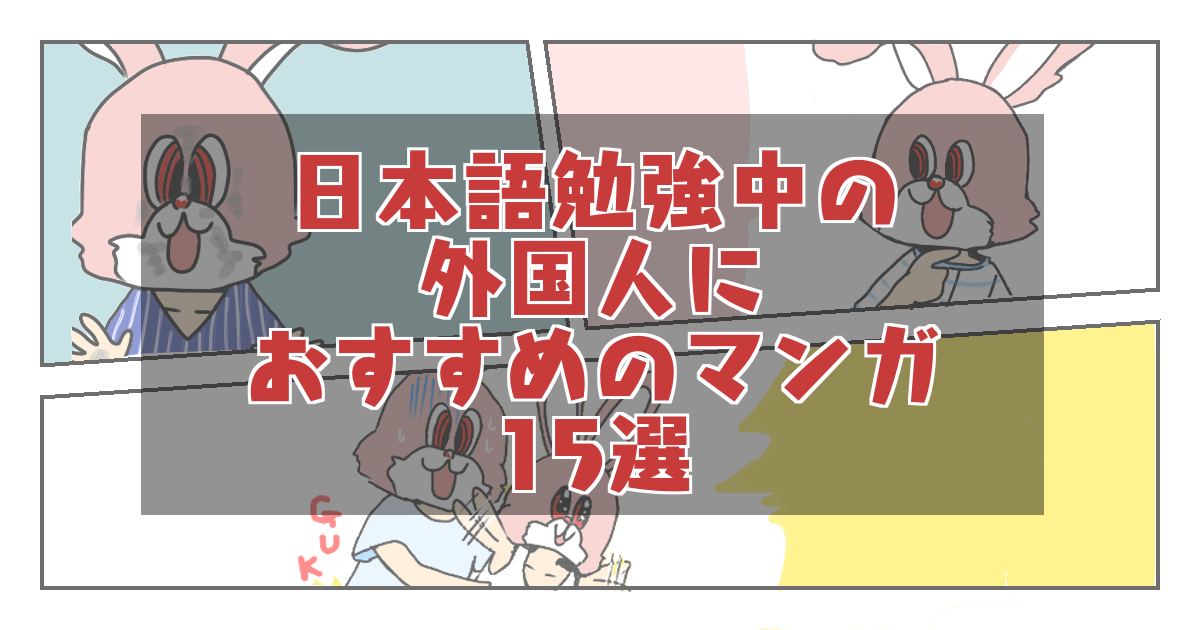
この前のテストどうでした? How was your test the other day?

ベストを尽くしたので、反省はしますが、後悔はしません! I did my best, so while I’ll reflect on it, I won’t regret it!

おっ、良いことです。ちなみに、「反省」と「後悔」の違いを知っていますか? Oh, that’s a great attitude. By the way, do you know what`s the difference between hansei and kōkai?

そして、ベストを尽くしたのなら反省しなくて良いですよ。自省してくださいね。Also, if you truly did your best, there’s no need to hansei — you should jisei (self-examine) instead.

え?え??え??? Huh? Wait, what do you mean??
よくセットで使われる「反省と後悔」。分かっているようで、その意味の説明は難しいかもしれません。ここでは、自省と反省、後悔の違いを意味・例文・英語でわかりやすく解説します。類語(類義語)猛省・内省など言い換えについても見ていきましょう。
The phrase “reflection and regret” is often used together, but explaining the difference between them can be tricky. Here, we’ll clearly explain the meanings and differences among jisei, hansei, and kōkai with definitions, example sentences, and English equivalents. We’ll also look at related words and expressions, such as mōsei and naisei.
自省・反省・後悔の意味と類語
「自省します・反省します・後悔します」これらの言葉には、意味の違いがありますが、知らず間違えて使っている人も多いものです。まずは、「反省・後悔・自省」の意味や使い分け、類語、言い換え表現と例文を見ていきましょう。
“I will reflect,” “I will repent,” and “I regret” — these expressions may seem similar, but they actually have different meanings. Many people use them incorrectly without realizing it. Let’s first take a look at the meanings, proper usage, related words, paraphrases, and example sentences for jisei(自省), hansei (反省), and regret kōkai(後悔).
自省とは?意味・英語・類語・例文
- 良し悪し関係なく、自分の行動やあり方を振り返って考えること。To look back and think about one’s actions and way of being, regardless of whether they were good or bad.
- 価値観や自分のあり方について考えること。It often refers to reflecting on one’s values, mindset, or personal growth.
- 未来のための指針を言うとき使う。Used when talking about setting a direction for the future.
- 英語:reflexion, reflection, self-examination
- 類語・言い換え:(過去を)振り返る/顧みる/省察/自省する/猛省/(自分を)見つめる/見つめ直す/自問自答/内省/内観/後悔/惜やむ/自戒/律する/戒める/
「今回のことを自省して、次はより良いものにしていきます。」By engaging in self-reflection, I can see what I should do next.
「自省することで、自分が次に何をすべきか見えてくる。」I will reflect on this experience and make things better next time.
反省とは?意味・英語・類語・例文
- 自分の行動やあり方を振り返って、それで良かったか考えること。To look back on one’s actions and way of being and think about whether they were right or wrong.
- 失敗や良くない点を改めようと考えること。To recognize one’s mistakes or shortcomings and consider how to improve them.
- 未来を見てフィードバックするとき使う。Used when reflecting on the past to gain feedback for the future.
- 英語:reflection, introspection, reconsideration
- 類語・言い換え:(過去を)振り返る/顧みる/省察/自省する/猛省/(自分を)見つめる/見つめ直す/自問自答/内省/内観/後悔/惜やむ/自戒/律する/戒める/自分に厳しくする
「反省点を挙げる。」List your points for reflection.
「反省してる?」「うん、ごめんなさいママ。」“Are you sorry for what you did?” “Yes, I’m sorry, Mom.”
「反省したからといって許されることばかりではない。」Just because you’ve reflected doesn’t mean you’ll be forgiven.
「反省はしろ。後悔はするな!」(某テニス選手の名言)Reflect, but never regret! (A famous quote from a tennis player)
後悔とは?意味・英語・類語・例文
- してしまったことについて、後から悔やむこと。To feel regret or remorse afterward about something you have done.
- 過去のみを見て使う。Used only when looking back on the past.
- 英語:repentance, regret
- 類語・言い換え:悔恨/悔い/悔悟/怨む/悔いる/思い残す/懲りる /無念がる/惜しがる/残念がる/口惜しがる/悔いを残す
「学生時代にもっと勉強しておけばと、後悔している。」I regret not having studied harder when I was a student.
「後悔先に立たず。」It’s no use crying over spilt milk. (Literal translation: ‘Regret does not come first.’)
「後悔するくらいなら、最初からするな。」If you’re going to regret it later, don’t do it in the first place.
自省・反省・後悔の違いと使い分け
では、詳しく自省と反省、後悔の違いと使い分け方を例文でわかりやすく解説していきます。
②「お茶碗を割って反省している。」
③「お茶碗を割って後悔している。」
①の場合、良し悪しに関係なく、自分がお茶碗を割ってしまったことについて考えている状態です。②は、お茶碗を割ったことは完全に発言者が悪い場合に使います。今後そのようなことがないように、未来に活かすことができるのは「反省」です。③の場合、ただ悔いているだけです。そこにはフィードバックがなく、未来に活かすという気持ちは特に入りません。
In example ①, you’re simply thinking about the fact that you accidentally broke a rice bowl — regardless of whether it was right or wrong. In example ②, the speaker is clearly at fault for breaking the bowl. In this case, it’s appropriate to use hansei (reflection), because it involves recognizing one’s mistake and using the experience as feedback for the future. In example ③, you’re merely feeling regret — there’s no feedback or intention to improve in the future.

実は、悪気はなくて割ってしまった場合、「反省」する必要はないんです。In fact, if you broke the bowl without bad intentions, there’s no real need to hansei (reflect).

悪気があって割ることはあまりないかと思いますが…。Of course, it’s rare that someone would intentionally break a bowl…
この時「反省」は間違い?自省と反省の違い
例えば、社会通念上「悪いこと」が分かっていない子どもが失敗したとき必要なのは「反省する」ことではなく、「自省する」こと。けれど、私たちは子どものときから、何かと「反省する」よう求められます。それにより、口語では「反省」という言葉は、悪気がなくても、良し悪しが判断しにくくても使われるようになっています。
When a child hasn’t yet developed a clear sense of right and wrong, they might do something that society considers “bad” without actually understanding that it’s wrong. In such situations, what’s truly needed is not hansei (repentant reflection) but jisei (self-reflection): However, When we were children, we were often told to reflect — “hansei shinasai!” (“Think about what you’ve done!”). As a result, the word hansei has come to be used even when there was no bad intention or when it’s difficult to decide whether something was truly “right” or “wrong.”

以下は、決定的に自分のせいで大失敗が起こったわけでない限り、「自省」に変えるのが本来の意味として正しいでしょう。Unless a failure clearly happened because of your own deliberate mistake, it’s more accurate — in the original sense — to say jisei instead of hansei.
「リレーで1位を取れなかったので、反省した。」I reflected because our team didn’t win first place in the relay.
「商談の段取りについて反省する。」I reflected on how I handled the business meeting.
「反省」という言葉を使うと、プレゼンやリレーや商談の準備をあえて疎かにしたために起こった失敗のように捉えることができます。(たぶんそんな人はいないでしょう)Using hansei in these sentences can make it sound as if the failure occurred because you intentionally neglected your preparation — which is probably not true for most people.

善良な市民である私たちにとって必要なことは「反省」ではなく、自分の心の在り方を決める「自省」ですよね。For ordinary, well-meaning people like us, what we truly need is not hansei but jisei.
類義語と自省・反省・後悔の違いと使い方
自省と反省、後悔の類語(類義語)に「内省」「猛省」があります。「内省」と「猛省」の意味や英語、言い換え表現、例文を見ていきましょう。
Among the related or synonymous words are naisei (内省, introspection) and mōsei (猛省, deep remorse or serious reflection). Let’s look at the meanings, English equivalents, paraphrases, and example sentences for each.
内省とは?自省・反省・後悔との違い
- 現実に起こったことを客観的に振り返り、そこから自分自身を見つめること。To objectively look back on what has actually happened and, through that process, examine oneself from within.
- 反省は周囲に伝えるための方法で、内省は自分自身と向き合う方法。While hansei (reflection) is often an outward process —something you might express or explain to others naisei (introspection) is an inward process of quietly facing yourself.
- 英語:reflection
- 類語・言い換え:自省/反省/内観/自責/内訟/思い返す/思い直す/省みる
「なぜイライラするのだろう。ひと呼吸ついて、心の内側を内省する。」Why am I feeling irritated? I take a deep breath and introspect, looking inside myself.
「内省して、自分の悪い部分と向き合う。」Through introspection, I face the parts of myself that need improvement.

反省と内省の違いは、「これがいけなかった」と周囲に伝える方法か、自分と向き合う方法かということです。Hansei is an outward process —a way of expressing “what went wrong” to others, while Naisei is an inward process —a way of quietly facing yourself.
猛省とは?自省・反省・後悔との違い
- 激しく「反省」すること。To reflect deeply and intensely on one’s actions — in other words, to reflect with strong emotion or seriousness.
- 反省よりも程度が強い。It expresses a stronger degree of reflection than hansei.
- 英語:fierce reflection
- 類語・言い換え:自省/反省/内省/自責/内訟/思い返す/思い直す/省みる
「今回のことを猛省する。」I deeply reflect on what happened this time.
「猛省の経験を重ねた結果、失敗することがなくなりました。」After many experiences of deep reflection, I eventually stopped making the same mistakes.

「猛省」と「反省」には意味の違いはありません。程度の違いがあります。There is no difference in meaning between mōsei and hansei —the distinction lies purely in degree. Mōsei simply expresses a stronger, more serious level of reflection.
まとめ
- 自省とは、未来のために自分の心の在り方や指針を考えること。
- 反省とは、悪いことや失敗について、未来のためにフィードバックすること。
- 後悔とは、起きたことを悔いるだけ。
- 内省とは、自分自身と向き合うこと。
- 猛省とは、激しく反省すること。
前回記事:【使用】と【利用】の違いとは?
次回記事:【認識】と【認知】の違いとは?




コメント